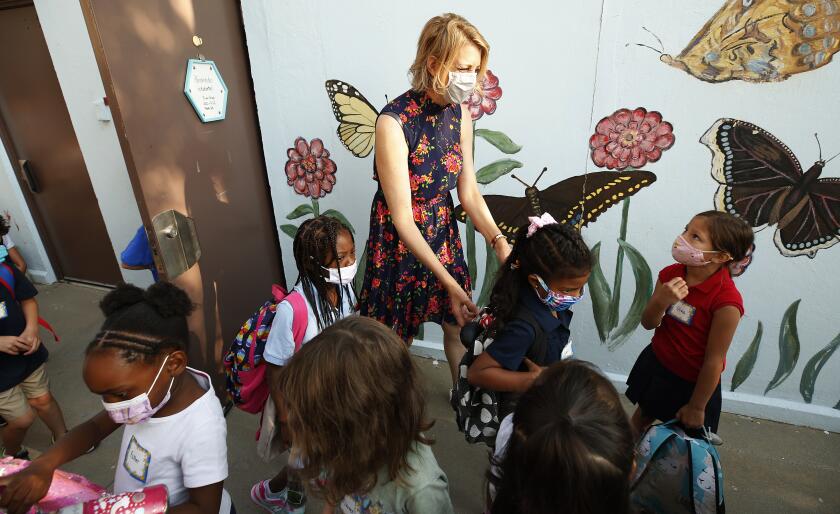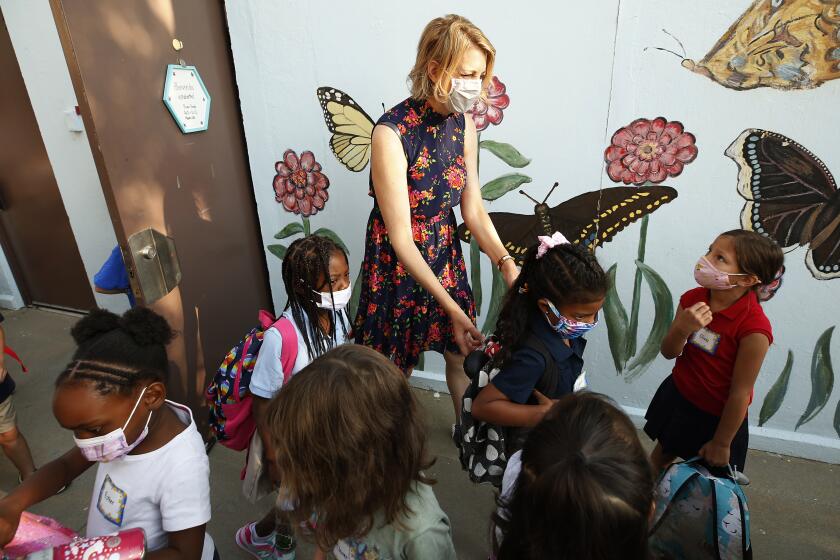Send Kids to School with a Sneeze? Some Parents Say No Way

School Attendance Policies and Parental Concerns
During the pandemic, school attendance policies were strict: any sign of illness meant keeping children home. However, as the situation evolved, many schools have adopted more lenient guidelines. For instance, in Los Angeles Unified School District (LAUSD), parents are encouraged to send their children to school if they have a mild cold or cough. The key symptoms that require keeping a child home include a fever of 100.4 degrees Fahrenheit or higher, vomiting, or diarrhea.
Despite these changes, many parents still keep their children home for minor illnesses. LAUSD Superintendent Alberto Carvalho mentioned this in a recent interview, stating that it’s time to move past such practices. However, many parents, especially those with young children in kindergarten or transitional kindergarten, continue to be cautious.
Parent Perspectives on Health and Education
Dulce Valencia, a mother of a kindergartner at San Fernando Elementary School, shared her concerns. Her son has missed several days of school due to illness. She believes that sending him to school when he is unwell could risk his health and potentially spread sickness to others. “I wouldn’t want to jeopardize his health for the learning,” she said.
Pediatricians like Dr. Eric Ball from Orange County highlight the confusion among parents regarding these recommendations. During the pandemic, parents were advised to test for COVID and keep children home for even minor symptoms. Now, the guidelines have shifted, which can be disorienting for families.
Balancing Health and Learning
Dr. Ball explained that young children often get sick multiple times a year, sometimes for weeks. If they stayed home for every illness, they would miss a significant portion of the school year. He emphasized the need to balance public health with educational needs. The American Academy of Pediatrics recommends that children can attend school unless they have a fever, vomiting, diarrhea, or are not well enough to participate.
The Centers for Disease Control and Prevention also advises keeping children home if they have worsening or unimproving respiratory symptoms. Dr. Ball noted that by the time a child shows symptoms, they may have already been contagious for several days, making isolation less effective.
Addressing Chronic Absenteeism
School districts are working to reduce chronic absenteeism, defined as missing at least 10% of school days. This issue can have long-term effects on literacy, educational success, and social-emotional development. In California, the rate of chronic absenteeism among kindergartners and transitional kindergartners peaked at 40% during the pandemic but has since decreased to 26% in the 2023-24 school year.
LAUSD has made reducing absenteeism a priority, lowering the kindergarten rate to 28%. However, this is still higher than the 15% rate in 2019-20. Nonprofit organizations like Families in Schools are conducting focus groups with Latino parents to understand the reasons behind absences, which often include illness and chronic health conditions.
Potential Risks of Sick Day Policies
Stanford University professor Thomas Dee warns that overemphasizing sending children to school with a cold could backfire. He suggests that high absenteeism rates may be linked to broader issues, such as a shift in parental perceptions about the importance of school attendance. Dee advocates for a better understanding of why parents are not sending their children to school rather than simply urging them to do so.
Valencia received a letter from the district regarding her son’s absences, warning that unexcused absences could lead to truancy classification. She feels the district is focused on attendance for financial reasons rather than the child’s health.
Parental Awareness and Concerns
Sydney Baune, an LAUSD TK teacher, observes that some children in her class seem unwell. She has seen cases of lice and children with flu-like symptoms. Parents are aware of the risks of spreading illness, as Nicole Berru, a parent of a TK student, expressed her concerns. She feels that sending sick children to school is inconsiderate and reflects a heightened health consciousness developed during the pandemic.
This article is part of The Times’ early childhood education initiative, focusing on the learning and development of California children from birth to age 5. For more information about the initiative and its philanthropic funders, go to [Bisakimia/earlyed].
- Kadikbud Maluku Utara: Guru PNS Bisa Mengajar di Sekolah Swasta - February 18, 2026
- AI Detects Math Anxiety Through Student Inputs and Adapts Feedback - February 18, 2026
- Anak-anak tidak mendapatkan sebanyak tidur yang mereka pikir orang tua mereka, menurut sebuah studi mengungkapkan - February 18, 2026



Leave a Reply